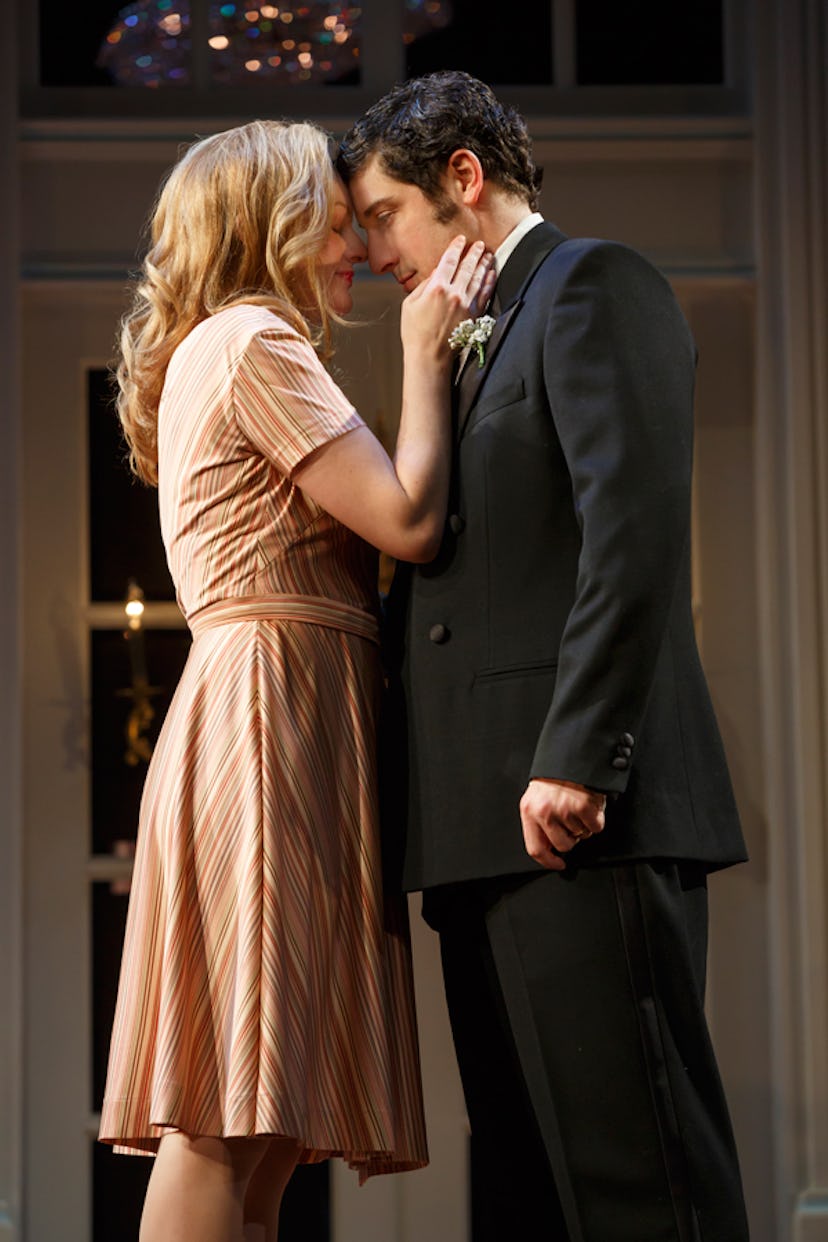A New Era of Elisabeth Moss

Spring is generally a harbinger of fresh starts and new life. For Elisabeth Moss, the upcoming season holds a more mixed—and undoubtedly, transfixing—bag. On April 5th, AMC premieres the first of the final seven episodes (appropriately named “The End of an Era”) of its hit series “Mad Men.” And so Moss will say goodbye to Peggy, the plucky secretary turned copy writer-cum-feminist icon she has embodied for the past eight years. But there will also be an exciting new beginning for the actress: this Thursday marks the opening night of her performance in Wendy Wasserstein’s Pulitzer Prize-winning “The Heidi Chronicles.” In this first Broadway revival of the 1989 play, directed by Pam MacKinnon at the Music Box Theatre, Moss stars as Heidi, a self-possessed (though at times equally insecure) art historian whose life we follow through three decades of politics, emotional upheaval and relationships, most notably with her best friend, the gay pediatrician Peter (Bryce Pinkham) and her arrogant, sometime boyfriend, Scoop (Jason Biggs). Here, the actress chats about life choices, crying on stage and finding closure.
What was it about Heidi that most resonated with you? It was this idea of a really normal woman—a woman I could see myself in, I could see my friends in—who was struggling with the idea of reaching a certain age where you are expected to make choices. And what if you’re not ready yet to make those choices? And what if you don’t have the answers yet? And what does that mean? That’s a really relevant idea to me as a 32 year-old woman. And also you just don’t say no to a revival of “The Heidi Chronicles” if they want you to do it! You just don’t be an idiot and you say yes.
Twenty-five years after the play was written, the things Heidi is struggling with still seem so relevant, no? Yes, the issues are uncannily similar. There are things that women are going to have to deal with that men are never going to have to deal with and that will never change unless men start being able to get pregnant and have babies. There’s just a biological thing—women will always have to deal with making the choice to have children or not and what does that mean to your career and your relationships, etc. But what’s so great about the play is it has a really positive ending, because things did get better for the next generation. Like, now it’s much easier for anyone to adopt. It’s so much easier to make the choice never to have children. You can have a partner for 15 years and you don’t have to make the choice to get married. Though obviously, there’s still a lot of work to be done in the area of gay rights.
Heidi is the lead, but in many pivotal scenes she’s very much an observer or on the periphery. How did that affect the way you tackled the role? The director and I love this idea of making sure I remain on the stage as much as possible—if I can do a [costume] change on stage, trying to do that. Because we wanted it to be as if Heidi is taking the audience through the story and you are on this journey with her. The audience and Heidi are on the same side.
I’ve read that you enjoy crying on stage. Can you elaborate on that? I’m not a method actor. I feel what my character is going through, but I don’t, like, think about my dog dying. It’s called acting for a reason. I don’t enjoy crying in my own life. I don’t enjoy being sad. But it’s my job and I love what I do. And any actor loves to do the emotional stuff. That’s what you do it for. I’m the kind of actor who likes to play complicated characters who go through things. So getting a speech like the one in this play, a four page emotional breakdown, that’s a gift to me as an actor.
Has doing this play helped you cope with the idea that “Mad Men” is ending? I did four films between when we finished “Mad Men” and when I started the play so I was kind of over it. But I will say the thing that definitely helps with moving on from “Mad Men” is that Heidi is a character that has a lot of similarities to the story Peggy is telling. And she’s a character that I’m kind of falling in love with and really love playing. The thing I miss the most about “Mad Men” is not being able to play Peggy anymore, so the best way to move on is to realize that there are other characters that I love playing. It’s going to be okay. There are other great writers out there. It’s going to be fine.
Photos: A New Era of Elisabeth Moss
Elisabeth Moss. Photo by Joan Marcus.
Elisabeth Moss and Jason Biggs. Photo by Joan Marcus.
Ali Ahn, Elisabeth Moss, and Elise Kibler. Photo by Joan Marcus.
Tracee Chimo, Jason Biggs, Elisabeth Moss, and Bryce Pinkham. Photo by Joan Marcus.